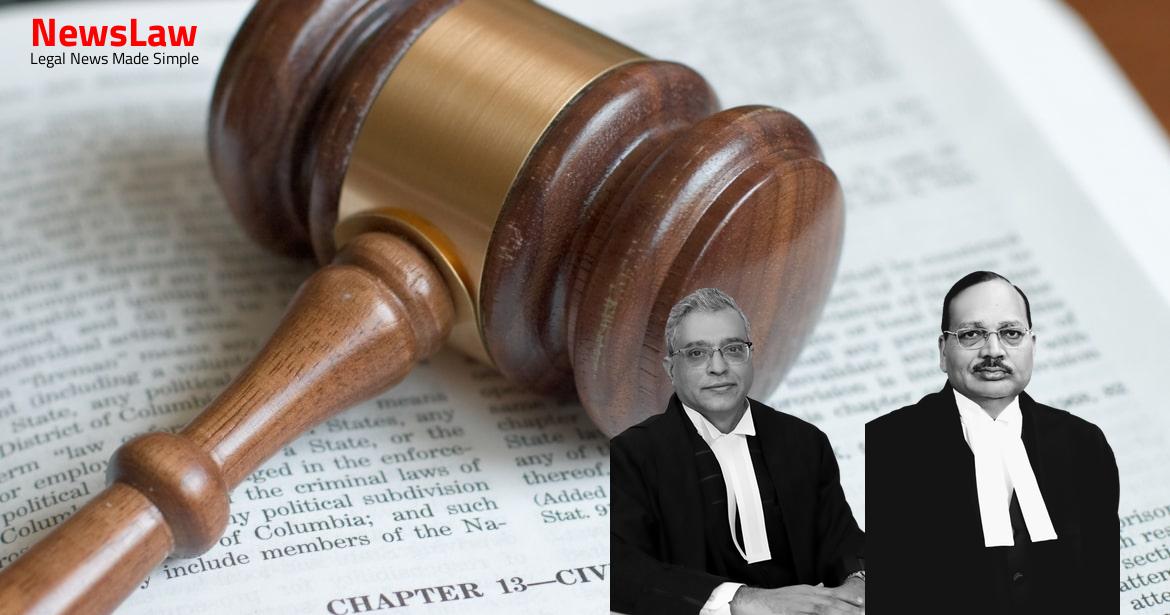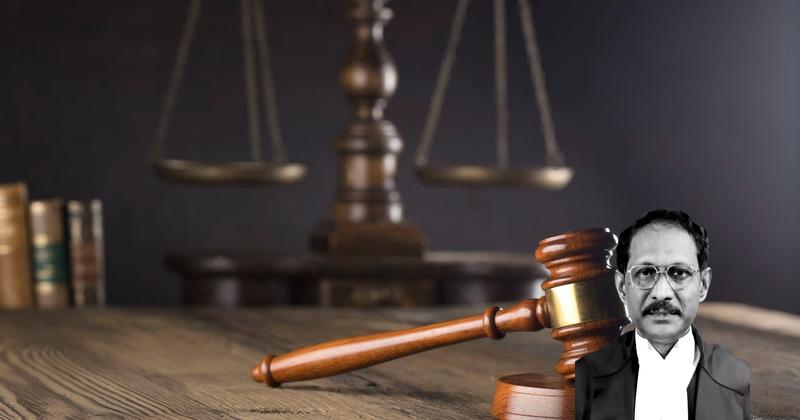Explore the nuances of contract law through a detailed analysis of the court’s legal assessment on the acceptance of conditional offers. Discover how the interpretation of contract terms and conditions can impact the determination of breach of contract and entitlement to relief. Follow along to gain insights into the complexities of contractual agreements and the importance of precise offer and acceptance language.
Facts
- The Appellant filed suit O.S. No.450 of 1994 for refund of earnest money deposited with the Respondent-Port Trust along with interest.
- Respondent-Port Trust claimed damages for breach of contract in suit O.S. No.106 of 1993.
- The two suits were clubbed together and heard jointly.
- Negotiations between the parties did not result in a concluded contract due to disagreements over inspection conditions.
- The Appellant insisted on inspection at their factory site, while the Respondent-Port Trust required inspection at their General Stores.
- The Appellant warned of charging extra if inspection was required at the Respondent-Port Trust’s site.
- The Respondent-Port Trust issued a purchase order to the Appellant for supply of wooden sleepers.
- The parties had differing views on the terms and conditions of the purchase order.
- The Trial Court decreed in favor of the Respondent-Port Trust in the first suit and dismissed the second suit filed by the Appellant.
- The Appellant requested the refund of the earnest money deposited.
- Contract concluded on 29.10.1990 when letter of intent was issued by the Respondent-Port Trust.
- Trial Court rejected delay in calling for tenders from a third party due to Respondent-Port Trust being a statutory authority.
- Proof of actual repurchase not necessary for claiming damages as per AIR 1979 SC 1339 14 and Anr.
- Rescission of contract and forfeiture of security deposit deemed proper within terms of the contract.
- Contract enforceable till completion or abandonment as per Trial Court’s findings.
- Concluded contract between Appellant and Respondent-Port Trust as Respondent-Port Trust accepted Appellant’s tender on 29.10.1990 while the price quoted was still valid.
Also Read: Electoral Malpractices in Mayor Election
Issue
- The specific issue in the appeal is whether the acceptance of a conditional offer with a further condition results in a concluded contract regardless of the acceptor’s acceptance of the additional condition proposed.
- The key questions involved are whether the Appellant committed breach of contract, whether the Respondent-Port Trust was entitled to recover the suit amount from the defendant, and what relief the Appellant and Respondent-Port Trust were respectively entitled to.
- Additionally, the issue of whether the Appellant was entitled to a refund of earnest money with interest from the Respondent-Port Trust is also part of the case.
Also Read: Balancing Power and Transparency: Electoral Bonds Struck Down, Disclosure Mandated
Analysis
- The High Court did not address the issue of proving the rate for similar canvas prevalent in Kanpur on the date of breach.
- The principle of absolute acceptance in the law of contracts was highlighted.
- The M/s Padia Timber Company Pvt. Ltd. cannot claim there was no concluded contract after accepting the tender.
- The breach of contract was attributed solely to M/s Padia Timber Company Pvt. Ltd., justifying the Visakhapatnam Port Trust’s forfeiture of the amount.
- The Trial Court overlooked Section 7 of the Contract Act while focusing on Section 4.
- The condition imposed by the Respondent-Port Trust was not unconditionally accepted by the Appellant.
- The nature of intent in the contract should be analyzed based on the facts and circumstances in the documents.
- The Appellant had submitted an offer conditionally subject to inspection at their depot, which was not discussed thoroughly by the courts.
- The High Court dismissed the appeals, affirming the Trial Court’s decision based on the evidence and materials.
- The Appellant’s argument about substantial variation in the contract was not accepted based on the letter of acceptance.
- Proof of actual damage is necessary to seek damages.
- Penalty cannot be imposed in the absence of pre-estimation of loss suffered.
- Abandonment of contract work after the due date constitutes breach.
- In assessing damages, the court can award compensation up to the stipulated maximum and must be reasonable.
- Compensation can be awarded even if actual damage is not proved.
- An offer must be accepted unconditionally for a contract to be concluded.
- The duty to mitigate loss consequent upon breach rests with the party claiming damages.
- The contract can be deemed void and unenforceable if not made in accordance with specified provisions.
- Acceptance of the offer must be absolute and unqualified under Section 7 of the Contract Act.
- Communication, certainty, and commitment are essential components of offer and acceptance in a contract.
- No concluded contract existed, therefore no breach or damages on the part of the Appellant.
- Earnest deposit of the Appellant to be refunded.
- Appellant entitled to refund with interest @ 6% per annum from the date of institution of the suit.
- Discussion on reasonableness of compensation/damages and mitigation of losses not required due to no breach by the Appellant.
- Examination on prior approval of the Board for contract validity not needed as no contract in place.
Also Read: Recall of Resolution Plan Approval: Legal Analysis
Decision
- The appeal is against a common Judgment and Order dated 10.10.2006 passed by the High Court of Judicature at Hyderabad
- The High Court confirmed a Judgment and Order dated 31.3.2000 of the Additional Senior Civil Judge, Visakhapatnam
- The suit filed by the Respondent- Port Trust against the Appellant for damages was allowed
- The suit filed by the Appellant for refund of earnest deposit was dismissed
- The Judgment and order of the High Court and the Trial Court are set aside
- No order as to costs is specified
- The right to reject defective materials, return them to the supplier, and recover freight is reserved by the Port
Case Title: M/S. PADIA TIMBER CO. P. LTD. Vs. THE BOARD OF TRUSTEES OF VISAKHAPATNAM PORT TRUST THROUGH ITS SECRETARY (2021 INSC 5)
Case Number: C.A. No.-007469-007469 / 2008



